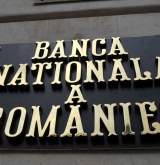Since the beginning of the financial crisis, The Factoring Company had no problems in cashing money from debtors. However, the issue may appear on another front: the lenders in the country announced a growth of funding costs which will have negative impact on the company’s clients. On the other hand, no bank has ever drawn credit lines or blocked loans.
As for costs, the company charges a factoring fee of 1% of the overall invoice and an interest charged at the sold of current bills, the interest being calculated on ROBOR, adding margins of nearly 3-4%.
“In the present conditions, we will re-gauge the margins according to our funding sources. We have no data at the moment to estimate what will happen next, if and how much the costs will increase for our clients. We expect the crisis to dent the business, however we still don’t know what will be the extent of the damage, yet the costs will surely climb”, Chirca added.
The factoring company funds 80% in average of the invoice’s value (20% is the returned sum in case of payment collection), and the average period of funding is 80 days. “This means we fund bills for 30-120 days”, Chirca mentioned.
Chirca outlined that the market evolution depends on the price of the product, as long as interests will face a major hike, therefore the clients’ interest for these products will not be as high as for products at lower price. This will have a major impact on funding demand, however the extent of the impact or the growth margins cannot be accurately estimated.
“From the standpoint of funding needs, regardless to interest rates, clients in Romania have major funding needs, and in the current context, everybody must invest to line up to EU standards. All SMEs want to raise their turnover and need floating capital, therefore, the demand will decline,” Chirca outlined.
Last year, the market rose 80%, and as for this year, Chirca forecasts 40-50% growth margin for the market.
“Overall value of the market was 1.4 billion euros, and as for this year, I think it will amount to 1.8-2 billion euros. We forecast a nearly 50% growth namely 2.1 billion euros,” Chirca concluded.
Citeste si:
Calculator Salariu: Află câți bani primești în mână în funcție de salariul brut »
Te-ar putea interesa și:



















































































![HR [PLAY] Tech Workout - 11...](https://www.wall-street.ro/image_thumbs/thumbs/973/973fe0a3888d417feff63de42e814180-260x260-00-65.jpg?v=1714082571)









